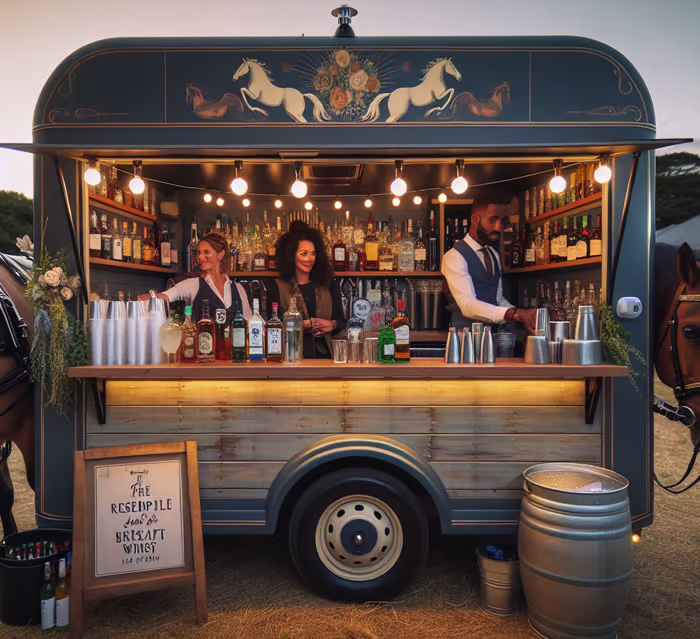Regulations for Serving Alcohol at Private Events in California
Serving alcohol at private events in California can elevate any occasion, whether it’s a wedding, corporate gathering, or exclusive party. However, navigating the legal requirements to do so responsibly and legally can be tricky. The Alcohol Beverage Control (ABC) enforces strict rules to ensure public safety and compliance.
This guide will help event planners, caterers, and mobile bar operators understand the regulations and how to meet them. With expert advice from an ABC Consultant, you can focus on delivering unforgettable events without worrying about legal pitfalls.
Do You Need a Liquor License for Private Events?
In most cases, if alcohol is being sold, or if the price of admission includes alcohol, a Liquor License is required. This applies to both public and private events. However, if the host provides the alcohol at no cost to guests, and there’s no exchange of money tied to the alcohol, a license may not be necessary.
For businesses like caterers or event planners offering alcohol as part of a package, securing the right permit or license is essential. Consulting an expert in ABC Consulting ensures you’re fully compliant with California law.
Permits for Private Events
Depending on the nature of the event, you may need one or more of the following permits:
Daily License (Type 77 or 58)
This is ideal for one-time events where alcohol is sold or included in ticket prices. These licenses are issued on a per-event basis.
Caterer’s Permit (Type 58)
Businesses with an existing Liquor License, such as restaurants or bars, can apply for a Caterer’s Permit to serve alcohol off-premises at private events.
Special Event Permit
This is typically required for nonprofit organizations hosting fundraisers or charity events that involve alcohol sales.
Navigating which permit is right for your event can be confusing. An experienced Liquor License Consultant can help you determine the appropriate license or permit and guide you through the application process.
Key Regulations to Follow
Public vs. Private Events
The Alcohol Beverage Control differentiates between private and public events. Private events, such as weddings, are generally invite-only and do not require a license if the alcohol is free and not tied to admission costs.
Public events, such as festivals or fundraisers, require a license since they involve ticket sales or open access.
Who Provides the Alcohol?
If the event host provides the alcohol and it’s not sold, licensing requirements are minimal. However, if the caterer or event planner supplies the alcohol, a proper Liquor License or permit is necessary.
Responsible Beverage Service
Regardless of the event type, alcohol service must follow California laws:
- No service to minors or visibly intoxicated individuals.
- Events must comply with local noise and nuisance regulations.
- Alcohol must be consumed on the premises where it is served.
Failure to comply can result in hefty fines or the suspension of permits and licenses.
Planning Tips for Legal Compliance
- Consult an Expert: An ABC Consultant can provide tailored advice to ensure your event complies with all regulations.
- Start Early: Permits and licenses can take weeks to process, so apply well in advance of your event.
- Budget for Licensing Costs: Permit fees vary depending on the type of license and event scope.
- Train Your Staff: Ensure all servers understand California’s alcohol laws, including how to check IDs and spot intoxication.
What About the Liquor Lottery?
In some areas, obtaining a new license can be challenging due to limited availability. The Liquor Lottery offers a way to secure a license in these high-demand regions. While the lottery isn’t directly tied to private events, it’s an option for businesses seeking long-term licenses. Learn more about the process here.
Why Work with a Liquor License Consultant?
Handling licensing requirements on your own can be overwhelming. A professional Liquor License Consultant offers expertise in:
- Identifying the correct permits for your event.
- Completing applications accurately and on time.
- Ensuring compliance with Alcohol Beverage Control regulations.
Whether you’re hosting one event or managing a catering business, their guidance can save you time, money, and stress.
Final Thoughts
Serving alcohol at private events in California is an excellent way to enhance the guest experience, but it comes with legal responsibilities. From choosing the right license to following strict service guidelines, compliance is key to avoiding fines and disruptions.
By partnering with an experienced ABC Consultant and planning ahead, you can ensure your event runs smoothly while staying within the law. Cheers to successful and compliant events!


